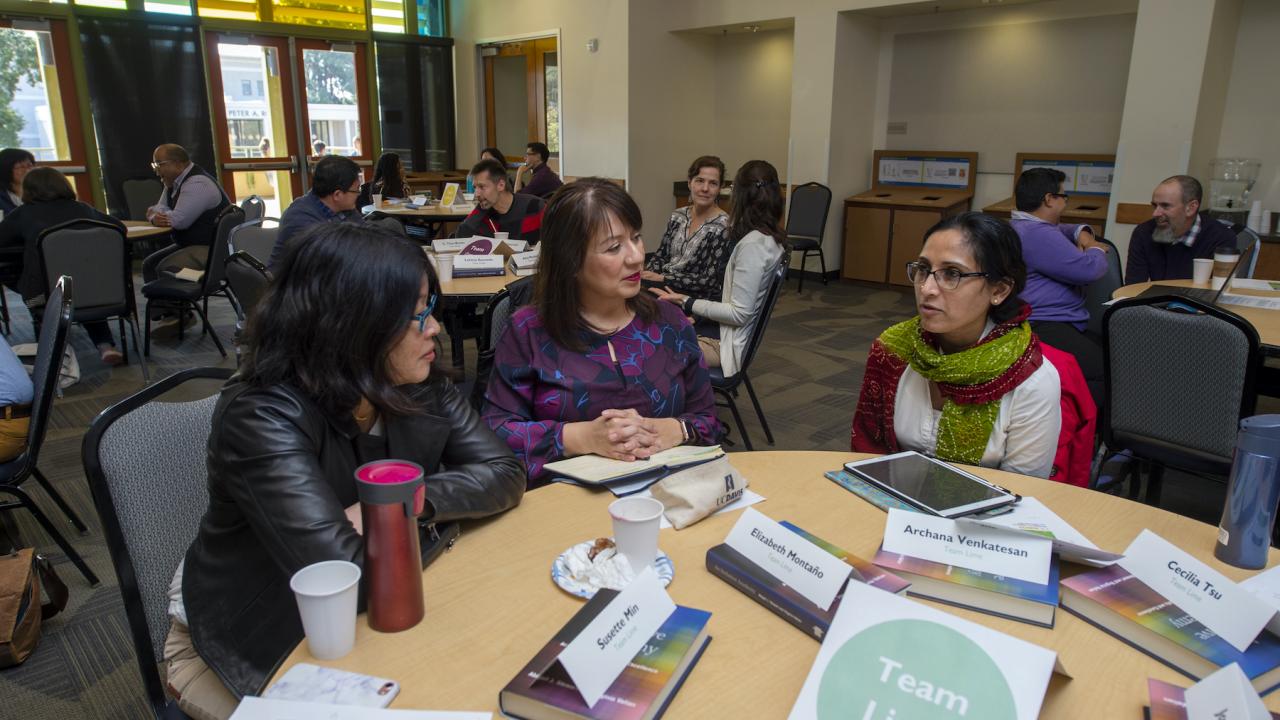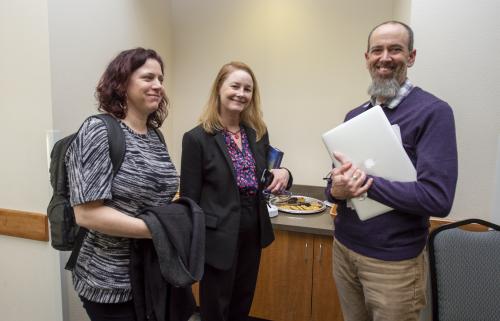
"Culture Shift: Developing Meaningful and Proactive Workplace Climate Reviews"
Professors Materson and Decker selected to pilot Workplace Climate Action Group
Quick Summary
- An initiative developed out of the FRIENDS Advancing Faculty Diversity grant
- The WCAG will design proactive climate review procedures to help departments with toxic work environments
- WCAG will seek to engage all employees of a department in matching them with the resources they need to improve workplace climate
The Office of Academic Diversity is pleased to announce that Associate Professors of History, Lisa G. Materson and Corrie Decker have been awarded $100,000 for their proposal “Culture Shift: Developing Meaningful and Proactive Workplace Climate Reviews.”

“Culture Shift” is the result of the year-long study Materson, Decker, and more than thirty of their faculty colleagues participated in as part of “FRIENDS,” or “Faculty Retention and Inclusive Excellence Networks: Designing Solutions,” a University of California, Office of the President (UCOP) Advancing Faculty Diversity through Improved Climate and Retention Program (AFD) grant received by UC Davis in the fall of 2019.
The urgent goal of the grant is the need to develop successful practices and standards for improving academic climate in many units and improve retention of faculty from historically underrepresented communities.
Materson and Decker propose the creation of a faculty-led Workplace Climate Action Group (WCAG) designed to provide early, constructive, in-house intervention to struggling departments in order to engender a university culture that helps recruit and retain women and under-represented minorities among the faculty and students.
Over the course of three phases, the WCAG will design proactive climate review procedures to help departments with toxic work environments address detrimental patterns and connect them to inhouse tools. These procedures will complement existing climate initiatives and help advance UC Davis Chancellor Gary May’s call for systemic culture change in the “To Boldly Go” strategic plan.
Several guiding principles serve as a foundation for the development of this proposal.
- First and foremost, they emphasize that this is a faculty-led project because efforts to promote diversity at the university struggle to gain traction if they are perceived to be imposed top down by administrators. Change can only happen if those most familiar and experienced with workplace climate issues have the opportunity to take the lead.
- There is a specific focus on departmental culture. Given that personnel reviews, budgets, curricula, and graduate training programs tend to be designed and managed at the departmental level, the department is the primary unit shaping “workplace climate” for most faculty, graduate students, students and staff.
- Most importantly, they envision this project as integral to implementing Goal #3 of Chancellor May’s “To Boldly Go” initiative to improve campus climate. In addition, such efforts can help to retain women faculty and faculty of color and contribute toward UC Davis’s efforts to become a federally-recognized Hispanic Serving Institutions (HSI).
Furthermore, they have documented four principles that improve workplace climate which are central to the development of this initiative:
- Antiracism: Provide tools to identify and change structural inequities and cultural norms that perpetuate racism at the department level, and offer resources for taking a more robust antiracist approach in our disciplines and workplace communities.
- Antibullying: Provide tools to identify incidents of bullying and harassment and demonstrate how they contribute to a hostile work environment, and offer resources for victims and training for employees.
- Implicit/Explicit Bias Awareness: Provide tools for recognizing how implicit and explicit biases shape workplace climate, and provide resources for addressing day-to-day microaggressions, assumptions about perceived differences, outright acts of discrimination, and other biases promptly and systematically in order to generate more awareness of biases.
- Bystander Awareness: Train faculty in bystander awareness so that they can recognize incidents of racism, implicit/explicit bias, bullying, harassment, and/or intimidation when these incidents first occur, and provide them with the tools for responding appropriately in a way that both addresses the issue and improves overall workplace climate.
The concerns about workplace climate they have identified intersect with neglect, isolation, overburdens of service, inequality or unfairness in the intra-departmental personnel process, and other challenges faculty face as the university strives toward inclusive excellence.
While the Workplace Climate Action Group may not address all of these issues directly, they anticipate that improving workplace climate will contribute to more equitable distribution of service, recognition of diverse contributions, and fairer peer evaluation.
Rather than targeting individual people and problems, the WCAG will seek to engage all employees of a department in matching them with the resources they need to improve workplace climate. It is not easy to shift our culture, but these efforts build on and complement the commitment from UC Davis leadership to improve our campus climate.
